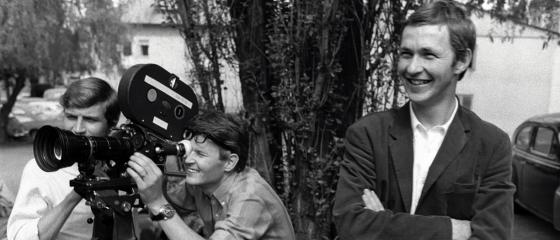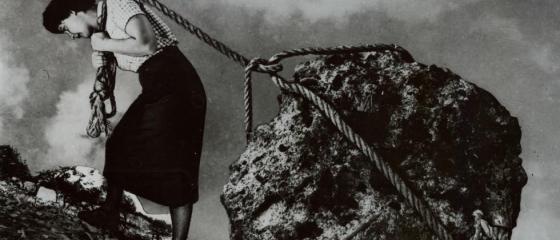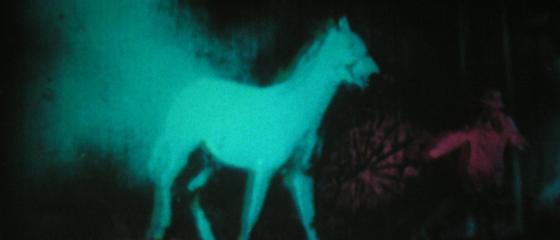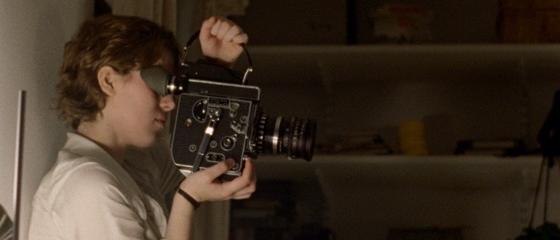One might wonder why summer is such a popular season for film (and literature). We don't have to go very far to find the answer: it is a time when we are granted a license to surrender to freedom without reservation. The warmth and the open air welcome us to connect with our bodies and feelings. The clear skies to be filled, calling for adventure, for the extraordinary, for beginnings. Summer days (either at the seaside or in the deserted and sticky city) install a state of mind that does not want to be interrupted if we meet in the cinema (face-to-face or virtually). That is why today we trace from our library a genealogy (biased but beautiful) of European summer cinema through some reminiscent scenes.
Let's start with the introductions. For the sake of illustration, let's take Pär and Annika, at the age of 14, in 'A Swedish Love Story' (1967) by our beloved Roy Andersson. Here, the couple is eager to spend a few summer days together:
Far less innocent, and far more explicit is the introduction to Catherine Breillat's 'Une vrai jeune fille', known for the prominence it gives to women's desire in its cinema, as depicted in this 'bucolic' scene:
Bergman's very famous debut feature, 'A Summer with Monika' (1953), also portrays a desiring woman, along with the brief glimpse of a summer that also stands as a dividing line in her life:
There are other approaches that are aimed towards self-discovery and revelation, a thorny issue in earlier times, as is the case of that year 1962 that Techiné shows in 'Los juncos salvajes' (1994), where attraction to the same sex is conditioned by the social norms that don't accept such a thing:
Awakenings that take place in a much looser era in Pawel Pawlikowski's 'My Summer of Love' (2004), a sequence that shows a crucial moment of transition between friendship and love:
Of course, in this "initiation" section there has to be room for 'Call me by your Name' (2017) by the Italian Luca Guadagnino, this scene (now meme material) says it all:
There is also another kind of " transition ritual", which is not necessarily sexual. 'Summer 1993' (2017), by Carla Simon, is in a way an initiatory film, the awakening to nature and to a new life of a girl:
Not everyone can afford to spend the summer in the countryside or by the sea. Summers in the city, however, have a particular texture. There is a strange feeling that for a moment the streets belong to those who stayed, the almost ghostly nights of wandering away from the burning asphalt. Everyone cools down as they can, just like in the mythical sequence of Pedro Almodóvar's 'La ley del deseo' (1987), where Carmen Maura does so:
'Céline et Julie vont en bateau' (1974), by Jacques Rivette, also features two women in a summer in the city, and their very particular way of escaping their boredom. Here, one is chasing the other one like, just Alice is chasing the rabbit:
An escape that, in a very different way, is also portrayed by Vigil Vernier in 'Mercuriales' (2014):
Argyris Papadimitropoulos' 'Wasted Youth' (2011) depicts a much more anguishing summer, the suffocating heat of an Athens exasperated by the crisis:
Also from the world of skateboarding, but this time from Serbia, Nikola Lezaic's vigorous debut feature, 'Tilva Ros' (2010), tells the story of two friends in a summer village, just before major changes that will separate them:
The teenage protagonist in Andrea Arnold's 'Fish Tank' (2009), living in the unfriendly surroundings of London's suburbs, does not have it easy either:
But there are those who find a way to escape, like the two young women hitchhiking in Alain Tanner's 'Messidor' (1978). Messidor in 1978 was the name given to summer in the calendar of the French Revolution, and the name of this exciting, bittersweet film:
Just like the characters in Jean-Luc Godard's 'Pierrot le fou' (1965), an unrestrained escape from the city and from every conventional way of seeing cinema.
There is no guarantee that a holiday by the sea will go well either. Antonioni's 'L'avventura' (1960) begins precisely with a disappearance. Here are three reasons (among many) to watch it:
In Antonioni's film, there is an unexpected turn of events surrounding summer plans that are more or less systematic, as also happens, to a certain extent, in João César Monteiro's À 'Flor do Mar' (1986).
Similarly, Mr. Hulot's plans for recreation do not work out for our amusement, as we see in this fragment of Jacques Tati's 1953 film:
Things become fascinating when glares enter the frame. Thus, two very different works share the luminosity of summer and love, with the darkness of death lurking in the background. Such is the case with one of the most magical films ever made, 'A Game in the Field' (1936) by Jean Renoir:
And the winner of the Golden Giraldillo, Alain Guiraudie's fascinating 'The Stranger of the Lake' (2013), in which desire is stronger than the threat of death:
Going back to fun and relaxation, we have Jacques Rozier's 'Du cote d'orouet', a film in which nothing and everything happens, the spirit of summer condensed into a film to stay and live in:
And if you've come this far, you'll wonder, where is Eric Rohmer? It is impossible to choose a single summer film from his filmography, so to close this heterogeneous and incomplete genealogy, here is a walk thru the summer on his films:






